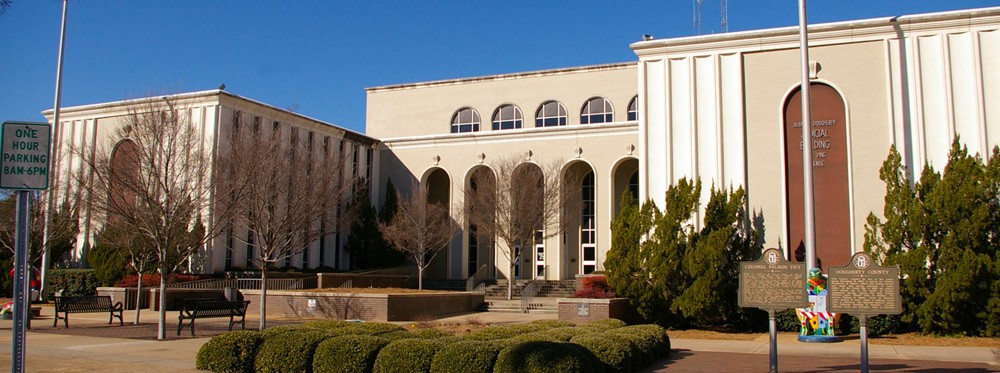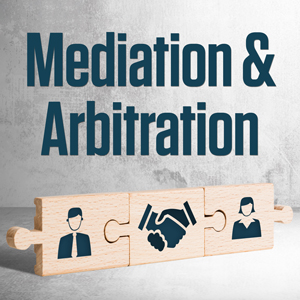
Blog
I Cannot Afford a Lawyer, but I need help. What can I do?

 Yes! Alternative Dispute Resolution (“ADR”) is a modern solution to legal problems. It allows the parties in a dispute to use mediators and arbitrators to help them solve their own problems at a significantly lower cost, more quickly, and, even better, the parties actually participate in the solution.
Yes! Alternative Dispute Resolution (“ADR”) is a modern solution to legal problems. It allows the parties in a dispute to use mediators and arbitrators to help them solve their own problems at a significantly lower cost, more quickly, and, even better, the parties actually participate in the solution.
What is the Difference Between Arbitration & Mediation in ADR?
That is a great question. ADR is the global term for a better way to parties to “find” justice in their legal problems. Two of the most widely-used ADR solutions are “Arbitration” and “Mediation”. There are many similar characteristics between arbitration and mediation including lower legal costs, a faster process than the typical court, greater confidentiality, and a significant increase in the parties’ participation in the outcome. They both employ “neutrals” which mean that arbitration and mediation rely upon and impartial, fair-minder person to help them navigate the process. At the Georgia Center for Arbitration and Mediation we also believe that neutrals should be leaders in their fields who understand the legalities involved in a dispute in order to better-facilitate a solution to your legal needs.
Mediation Gives the Decision Making Authority Directly to the Parties Involved:
When mediation is utilized, the parties in a dispute agree to let a third party neutral called a “mediator” help them walk-through their problems and work toward an acceptable solution. Typically, the parties are in separate rooms and the mediator walks between the parties to understand each party’s perspective and to understand each party’s goals. What a party says to a mediation is confidential and cannot be revealed to the other side unless the mediator is authorized to share that information. At the end of the mediation, a solution is reached only if the parties come to an agreement.
In a lawsuit, the parties have little say in the outcome of their problems as a judge or a jury makes a determination of which party is responsible to the other party. Furthermore, in a legal proceeding, the outcome is almost always an award of money damages. But, mediation is different! First, the parties determine if they want to amicably resolve the situation–there is not obligation to reach settlement. More importantly, the solution can include things in addition to money–it can allow for specific performance, an apology, and graduated improvement based upon performance. The settlement can be very creative that meets the specific needs and goals of the parties involved. Thus, it is important to choose a mediator with creative problem-solving capabilities. In other words: both parties may feel as though they have won in a successful mediation.
Arbitration is Similar to Hiring a “Private Judge”:
Sometimes the parties cannot resolve the disputes through mediation; thus, another common tool of ADR is arbitration. When the parties in a dispute choose arbitration, then they select an arbitrator to hear their case. He or she acts similar to a judge in a civil trail. Most often, the arbitrator will listen to the evidence and choose which party is liable to the other party. Unlike a trial, however, the arbitrator may employ some of the same tools used by a mediator to facilitate settlement if the arbitrator believe that settlement is likely or if only a creative-solution might be “better” than a traditional monetary award.
It is important to note that trial court judges are bound by state or federal rules of civil procedure. That is not the case with arbitrators. The parties agree to the procedures, the parties agree to the time-table, and the parties agree to the rules of evidence. Unlike a civil court judge which likely has a heavy docket of criminal and civil suits, the private arbitrator has a handful of cases in which he or she is vesting in resolving.
Arbitration has Many Advantages Over a Traditional Lawsuit:
Although we have described arbitration as hiring a “private judge” to hear a legal proceeding, it has numerous advantages over the traditional legal process:
Arbitration Can be Very Fast:
Although there is a decision-maker in arbitration, the advantages of hiring a “private judge” are remarkable. Most courts in Georgia have a significant backlog, and criminal cases are always given priority over civil matters (criminal cases have a constitutional right to a “speedy trial”). In lieu of waiting years, it is possible to schedule an arbitration hearing in weeks. Also, civil courts have “priories” which take precedence over a scheduled trial; this is not the case in private arbitration so delays are far less common.
Legal Costs Can be Much Lower:
Furthermore the costs to each can be much lower. First, the costs to hire an arbitrator are split between the parties. Second, in a traditional lawsuit, there is an established (time-consuming) procedure which must be allowed. This includes discovery procedures, motions, and related matters, and, possibly, an appeal. In an arbitration setting, the parties can choose what they want to do before trial, and how-long the parties have to complete it. This lowers the hard-costs associated with civil litigation, but it also decreases the soft costs associated with litigation fatigue, the stress of an unpredictable outcome, and the “tricks” some lawyers use to increase costs and delay the final outcome.
Subject-Matter Arbitration Can Lower Costs and Improve the Likelihood of a Correct Ruling.
Judges are generally very intelligent, however, they may not be subject-matter specialist; they hear cases from family and domestic law to complex construction matters. At the Georgia Center for Arbitration & Mediation, we offer subject-matter specialists as third-party neutrals. This insures the participants that the person making the legal decision has a vast understanding of the law (and the business) surrounding the decision. The parties do not need to spend time or money “educating” our subject-matter specialists; instead, they can go straight to the heart of the dispute and begin the resolution process more quickly.
Also, arbitrators who are subject-matter experts are more likely to find the better verdict in a given situation. They are not researching the law or trying to understand something for the first-time. Many lawyers who want a better decision prefer to hire a subject-matter specialist when they look for an arbitrator.
Do I Need A Lawyer in ADR (Mediation or Arbitration)?
No. The ADR process allows the participants to make decisions as to what is best for them. In fact, in many meditations, we prefer that lawyers are not involved as they may be more concerned about generating their fees than concluding the matter. This has the potential to save participants tens of thousands in dollars in legal fees.
What Types of Legal Matters are Good for Arbitration or Mediation?
This may seem too simple, but virtually any non-criminal legal proceeding can be handled through arbitration or mediation. Civil matters, Probate matters, Business Law, Construction Law, and Divorce and Custody issues are ripe for ADR. Business Contracts, collections, employments issues, and corporate matters frequently benefit from the mediation and arbitration process.
Are Mediation Settlements Legally Binding?
Yes. If the parties agree to mediate, and the mediation results in a settlement agreement between the parties, then that settlement agreement is legally binding on all of the parties.
Are Arbitration Awards Legally Binding?
Just like a mediation settlement, a “Final Award” in arbitration is legally binding. In the event that the parties do not comply with the completed ADR process, then Georgia courts will honor them and enforce them.
How Do I start the ARD Process?
Cases generally go to mediation or arbitration because (i) Georgia courts mandate that the parties engage in mediation in an attempt to settle the matter before trial, (ii) a contract between the parties requires ADR as a part of the dispute-resolution process, or (iii) the parties agree between themselves to seek the help of a third-party neutral rather than hire lawyers and g0 through the traditional civil trial process. When the mediation is court-mandated or when the contract requires mediation or arbitration, you only need to contact us to start the process. If the parties agree to go this route themselves, then they only to contact us to get an Agreement to Arbitrate or an Agreement to Mediate before starting scheduling the ADR hearing.
Where is Georgia Center for Arbitration and Mediation Offices Located?
We can help you regardless where you are located. We maintain two physical offices in Georgia in Atlanta and Thomasville. We also offer on-line (virtual) mediation services and on-line arbitration services. Finally, our neutrals have the experience and legal knowledge that many of our clients want us to travel to them to assist in the resolution of their claims (which we are glad to do). From our Thomasville, Georgia office, we also serve Albany, Columbus, Valdosta, Bainbridge, Cairo, Quitman, Moultrie, Georgia and Tallahassee Florida. Contact us today if we you seek alternative dispute resolution.








